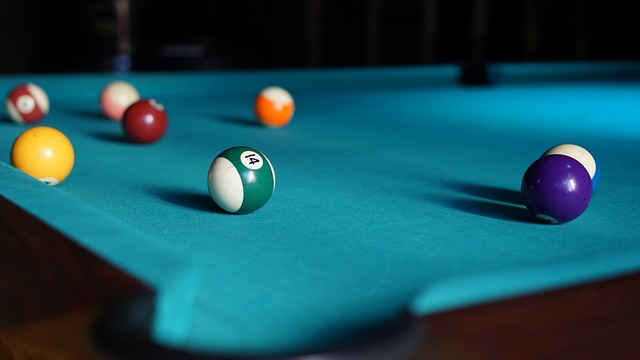Pool is a beloved pastime across the UK, whether in a bustling pub or a cosy home games room. But not all pool games are the same. English pool and American pool, while sharing similarities, differ significantly in table design, gameplay, and cultural appeal. Understanding these differences can help you choose the perfect table for your space and playing style. Here’s a clear guide to the distinctions, tailored for UK enthusiasts.
A Brief History
English pool, often called “British pool,” has deep roots in the UK, evolving from the “Noble Game of Billiards” enjoyed by royalty in the 1800s. Its compact design was perfected in the 1970s by UK manufacturers like Superleague to suit the smaller spaces of pubs and clubs, making it a staple of British leisure culture. American pool, by contrast, reflects the bold, open style of the USA, with larger tables and a faster-paced game, popular in spacious venues like sports bars. Both games offer unique experiences, but their differences cater to distinct preferences.
Table Size: Compact vs. Grand
- English Pool Tables: Typically 6ft or 7ft in length (measured externally), English tables are designed for practicality, fitting comfortably in homes, pubs, or clubs with limited space. The 7ft table is the standard for professional tournaments, such as those run by the English Pool Association, offering a balance of accessibility and competitive play. Smaller 6ft tables are ideal for tight spaces, while 8ft versions are less common but available for larger rooms.
- American Pool Tables: These are noticeably larger, with standard sizes of 8ft or 9ft (measured by the playing surface). The 9ft table is the professional standard in the USA, used in World Pool-Billiard Association events. These tables demand more space, making them a striking centrepiece for dedicated games rooms but less practical for smaller UK venues.
UK Perspective: English tables are the go-to choice for most UK homes and pubs due to their compact size and versatility, aligning with British values of practicality and efficient use of space.
Balls: Size and Style
- English Pool Balls: Smaller at 2 inches (50.8mm) in diameter, with a slightly smaller 1 7/8-inch cue ball (especially on coin-operated tables to separate it via the return mechanism). Traditionally, English pool uses red and yellow balls, though spots and stripes are also common. These lighter balls encourage precise, tactical shots, suiting the strategic nature of the game.
- American Pool Balls: Larger at 2 1/4 inches (57.2mm), including the cue ball, and heavier, American balls feature the iconic spots and stripes design. Their size contributes to a bolder, more dynamic playing style, with greater emphasis on power and speed.
UK Perspective: The smaller balls and traditional red/yellow sets of English pool resonate with UK players, evoking nostalgia for pub games and fostering a sense of community and strategy over flashiness.
Pockets: Precision vs. Forgiveness
- English Pool Pockets: Smaller and tighter, with pocket openings typically 3.2–3.5 inches wide. The curved pocket jaws (or shoulders) make potting more challenging, as balls can ricochet unpredictably. This design rewards accuracy and skill, aligning with the thoughtful, measured approach of English pool.
- American Pool Pockets: Larger, typically 4.5–4.625 inches wide, with straight-edged jaws that make potting easier. These forgiving pockets suit the faster, more aggressive style of American pool, where potting multiple balls in a single shot is common.
UK Perspective: The tighter pockets of English tables appeal to UK players who value skill and precision, reflecting the British appreciation for understated mastery and strategic gameplay.
Cloth: Texture and Speed
- English Pool Cloth: Traditionally made from wool with a napped texture, creating a directional weave that slows the balls slightly and adds friction. This promotes controlled, deliberate shots, though faster, napless cloths are gaining popularity for smoother play.
- American Pool Cloth: Uses a smooth, napless nylon or worsted cloth, resulting in a faster, slicker playing surface. This enhances the high-speed, action-packed nature of American pool, with balls rolling further and rebounding more predictably.
UK Perspective: The napped wool cloth is a hallmark of English pool, especially in traditional pub settings, where the slower pace encourages social interaction and careful play. However, modern UK players may opt for faster cloths to blend tradition with contemporary preferences.
Cues: Subtle Differences
- English Pool Cues: Typically 57 inches long with smaller tips (8–11mm) to match the smaller balls. These cues offer greater control for precise shots, ideal for navigating the tighter pockets and smaller table.
- American Pool Cues: Slightly longer at 58 inches with larger tips (11–13mm) to suit the heavier balls. The larger tip aids in delivering powerful, straight shots, complementing the open style of American pool.
UK Perspective: English cues are preferred for their precision, aligning with the UK’s emphasis on skill over power, making them ideal for home and pub players aiming for accuracy.
Gameplay: Strategy vs. Speed
- English Pool: Known as eight-ball pool in the UK, this game is strategic and methodical. Players aim to pot either reds or yellows before sinking the black 8-ball to win. The smaller table and tighter pockets encourage tactical play, such as “snookering” opponents to block their shots, making it a cerebral, social experience.
- American Pool: Typically played as 8-ball or 9-ball, American pool is faster and more dynamic. In 8-ball, players pot spots or stripes before the 8-ball, while 9-ball involves potting balls in numerical order. The larger table and forgiving pockets promote aggressive, high-energy play with frequent rebounds and long shots.
UK Perspective: English pool’s strategic depth suits the British preference for thoughtful, community-driven games, often played in pubs where players chat and strategise over a pint. American pool’s faster pace may appeal to younger players or those seeking a more cinematic, US-inspired experience.
Cultural Fit: Pub vs. Pool Hall
- English Pool: A cornerstone of British pub culture, English pool tables are designed for accessibility and social play. Their compact size and coin-operated mechanisms (common in pubs) make them a practical choice for casual players and competitive leagues alike. They embody the UK’s love for tradition and community-focused leisure.
- American Pool: More common in urban sports bars or dedicated pool halls, American tables reflect a bold, competitive spirit. Their larger size and flashy gameplay make them a statement piece, ideal for those with ample space and a preference for high-octane entertainment.
UK Perspective: English pool tables dominate UK pubs and homes due to their practicality and cultural significance. They’re seen as a “people’s game,” fostering camaraderie and skill development in everyday settings.
Which Should You Choose?
- Choose an English Pool Table if: You value precision, strategy, and a compact design that fits smaller UK homes or pubs. It’s perfect for casual players, families, or league enthusiasts who enjoy the traditional British game.
- Choose an American Pool Table if: You have a spacious games room and prefer a fast, exciting game with a bold aesthetic. It’s ideal for those drawn to the American style of play seen in films or professional tournaments.
Room Size Tip: Ensure you have enough space for cueing. For a 7ft English table, a room of at least 14ft x 11ft is recommended (allowing 5ft clearance around the table for a 57-inch cue). For a 9ft American table, aim for 16ft x 12ft. Always measure your space carefully.
Conclusion
English and American pool tables each offer a distinct experience, shaped by their cultural origins. English pool, with its smaller tables, tighter pockets, and strategic gameplay, is a perfect fit for the UK’s love of tradition, precision, and social play in pubs and homes. American pool, with its larger tables and faster pace, brings a dynamic, high-energy vibe suited to spacious venues or enthusiasts seeking a bold challenge.

